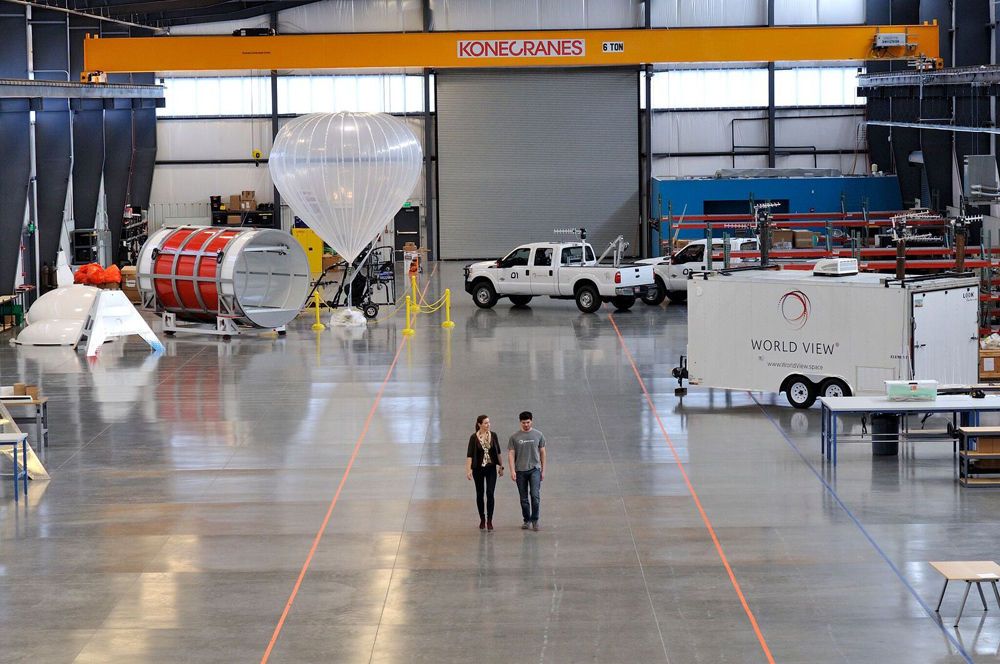Page 10438
Feb 24, 2017
The Long-Shot Bid to Put Crispr in the Hands of the People
Posted by Dan Kummer in categories: bioengineering, biotech/medical, genetics, government, law
Last week, the US Patent and Trademarks Office ruled on the most-watched patent proceeding of the 21st century: the fight for Crispr-Cas9. The decision was supposed to declare ownership of the rights to the revolutionary gene editing technique. But instead, the patent judge granted sorta-victories to each of the rival parties—a team from UC Berkeley and another with members from both MIT and Harvard University’s Broad Institute. That’s great for those groups (and their spin-off, for-profit gene editing companies with exclusive licenses). But it leaves things a bit murkier for anyone else who wants to turn a buck with gene editing.
The Crispr discoverers now have some authority over who gets to use Crispr, and for what. And while exclusive licenses aren’t rare in biotech, the scope of these do stand out: They cover all the 20,000-plus genes in the human genome. So this week, legal experts are sending a formal request to the Department of Health and Human Services. They want the federal government to step in and bring Crispr back to the people.
Crispr is new, but patent laws governing genetic engineering date back decades. In 1980, shortly after the Supreme Court ruled that genetically engineered microbes were patentable, Congress passed something called the Bayh-Doyle Act. The law gives permission for universities to patent—and license—anything their researchers invented with public funds, making it easier to put those inventions back in the hands of citizens.

https://www.youtube.com/watch?v=bY_wfKVjuJM&feature=youtu.be
Recently, I saw an article making big deal that a robot can now write. Ok, it only took us 253 years to enhance it a little. Meet the Automaton from Sweden that could write and was designed to look like a young boy. Made in 1774 and still writes today.
We had Automaton that did this since 1774. 1st one was from Sweden and made in 1775.
Feb 24, 2017
The Chess Turk explained
Posted by Karen Hurst in categories: media & arts, robotics/AI

https://www.youtube.com/watch?v=0DbJUTsUwZE&feature=youtu.be
Wonder what Google thinks about this version of a robot playing Chess from 1769. The point is, we really have struggled in AI particularly robotics for over 250 years.
As you can hear I’m not a native speaker. Please execuse grammatical and pronunciation mistakes.
Feb 24, 2017
How Leaders Dream Boldly to Bring New Futures to Life
Posted by Karen Hurst in category: futurism
Keys of the emerging leaders are — 1) Futurist 2) Technologist 3) Innovator 4) Humanitarian. I rank them as (only in my opinion only as it truly depends on industry, company and products, culture, etc.)
1) futurist 2) innovator 3) technologist 4) humanitarian
This article is part of a new series exploring the skills leaders must learn to make the most of rapid change in an increasingly disruptive world. The first article in the series, “How the Most Successful Leaders Will Thrive in an Exponential World,” broadly outlines four critical leadership skills—futurist, technologist, innovator, and humanitarian—and how they work together.
Continue reading “How Leaders Dream Boldly to Bring New Futures to Life” »
Feb 24, 2017
IOTA — Next Generation Blockchain
Posted by Karen Hurst in categories: bitcoin, business, internet
A new world is coming — been waiting for a while. Glad we’re finally seeing the promotion.
As Internet-of-Things keep expanding the need for interoperability and sharing of resources become a necessity. IOTA enables companies to explore new business-2-business models by making every technological resource a potential service to be traded on an open market in real time, with no fees.
Feb 24, 2017
Why the Potential of Augmented Reality Is Greater Than You Think
Posted by Klaus Baldauf in categories: augmented reality, business, habitats, mobile phones, virtual reality
Never before have businesses been able to build billion-dollar valuations in so little time. Never before have incumbent enterprises been able to go out of business so quickly. Disruption is now commonplace, and augmented reality (AR) is emerging as yet another avenue to turn industries on their heads. But what direction will this new technology take?
AR overlays digital information on the physical world using a smartphone (think Pokémon Go) or a headset. In its simplest form, AR is simply a rectangular display floating in front of the eyes, à la Google Glass. More advanced forms will drop video game characters or useful information seamlessly onto physical objects, from homes to industrial warehouses.

Continue reading “Why the Potential of Augmented Reality Is Greater Than You Think” »
Feb 24, 2017
Want an Energy-Efficient Data Center? Build It Underwater
Posted by Klaus Baldauf in category: computing
Microsoft wants to submerge data centers to keep them cool and to harvest energy from the sea.
Feb 24, 2017
High-Altitude Balloon Company Wants to Open a New Market at the Edge of Space
Posted by Klaus Baldauf in category: space

https://youtube.com/watch?v=GFdXBQPuznU
World View Enterprises, a private company that plans to sell balloon rides to the edge of space, has announced the grand opening of its new headquarters and a conjoined spaceport in Tucson, Arizona.
The new facility will soon be launching World View’s non-crewed high altitude balloons, which could provide a low-cost alternative to launching payloads into space, according to company representatives. The balloons can carry instruments and equipment that could, for example, be used to consistently observe severe weather events or natural disasters. The balloon could also carry equipment for scientific investigations, communications, remote sensing and wealth of other potential applications.
Continue reading “High-Altitude Balloon Company Wants to Open a New Market at the Edge of Space” »
I wanted to share an amazing part of US history demonstrating why history matters.
American Revolution Records from the American Revolutionary War indicate that at least a few Muslims fought on the American side. Among the recorded names of American soldiers are “Yusuf ben Ali” (a member of the Turks of South Carolina community), “Bampett Muhamed” and possibly Peter Salem.
The first country to recognize the United States as an independent nation was the Sultanate of Morocco, under its ruler Mohammed ben Abdallah, in the year 1777. [23] He maintained several correspondences with President George Washington.














